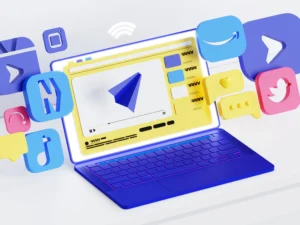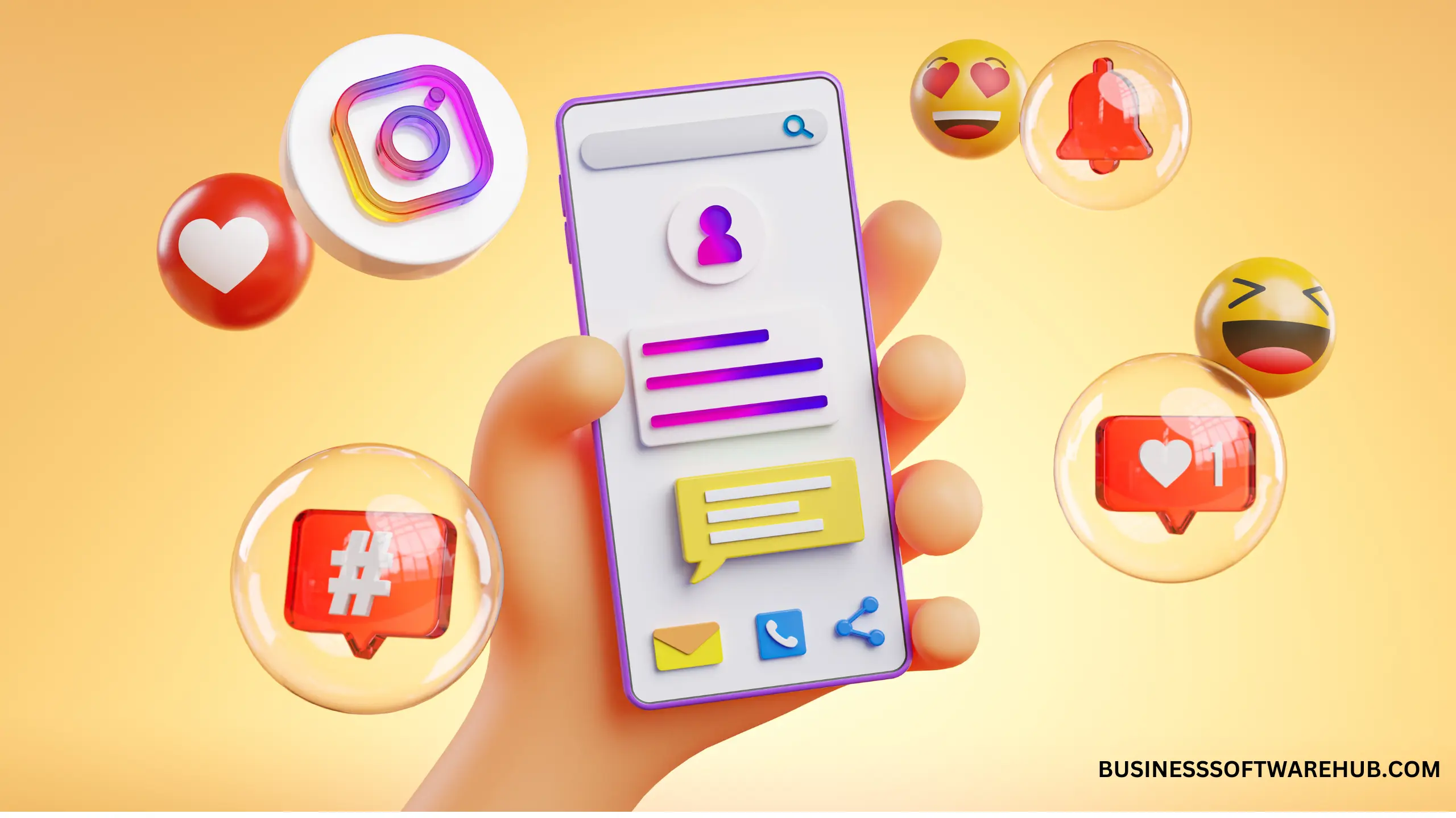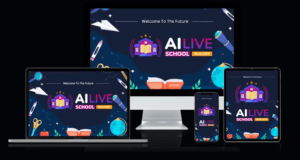We all know that marketing is the lifeblood of any business. Before diving into the advantages and disadvantages of digital marketing, let’s take a moment to revisit the basics.
What is Digital Marketing?
Digital marketing is the promotion of products and services using the internet and other digital channels. It’s not just limited to online businesses, even traditional brick-and-mortar stores also benefit greatly from digital marketing.
Many Industrial experts believe that digital marketing may eventually replace traditional marketing entirely.
However, it’s important to remember that digital marketing comes with its own set of limitations also.
A quick look at digital marketing history
Digital marketing began in the 1990s with the rise of the internet. Back then, the Web 1.0 platform allowed people to find information but didn’t let them share it online. Many marketers were unsure about using the internet because it wasn’t widely used yet.
In 1993, the first clickable ad banner appeared, and things began to change. By 1994, new technologies and platforms like Yahoo were launched. Yahoo gained 1 million visits in its first year, pushing businesses to improve their websites for better search engine rankings.
In 1998, Google was born, and other search engines like MSN and Yahoo’s web search also became popular. By 2006, search engine use had skyrocketed, with 6.4 billion searches in a single month!
The internet evolved with Web 2.0, which allowed people to interact, share, and communicate online. Social networking sites like MySpace and Facebook started appearing. These platforms created new opportunities for businesses to connect with their audiences.
Another important development was the invention of cookies, which helped businesses understand people’s browsing habits and show them relevant ads. Over time, cookies improved, giving marketers better tools to track user preferences.
In 2014, digital marketing is everywhere. People shop online anytime, and social media plays a huge role.
In 2024, Americans spent an average of 143 minutes daily (2 Hours 23 Minutes) on social media. Platforms like Facebook, Twitter, Pinterest, and Instagram became popular tools for businesses to reach customers, build relationships, and sell their products.
This shows how digital marketing has grown from simple banners to a powerful tool used by businesses worldwide.
The Present
Today, people spend 65% of their digital media time on mobile devices. The digital advertising industry is worth about $200 billion, with Google Ads making up 96% of Google’s revenue.
There are around 3.1 billion internet users, and social media has played a huge role in changing how businesses market online. Bloggers and Instagram influencers have created a $1 billion industry, which is expected to grow even more.
Digital marketing continues to evolve, with exciting new developments and trends shaping its future.
Why is digital marketing so important today?
Digital marketing has revolutionized the way businesses connect with customers. It enables global reach, real-time engagement, and better targeting – all things that were unthinkable in traditional marketing. However, like any powerful tool, it has its disadvantages as well.
In this article, we’ll explore both the advantages and disadvantages of digital marketing, understanding its transformative role in modern business while considering its limitations.
Top 15 Advantages of Digital Marketing

Let’s look at what are the advantages of digital marketing in the present working for everyone.
Advantages of Social Media for Businesses:
1. Global Reach
Social media enables businesses to connect with a worldwide audience, regardless of location. Whether you’re targeting local customers or expanding globally, social media makes it easier to reach your target audience.
2. Strong Customer Relationships
Social media provides businesses with an opportunity to engage directly with customers. By offering helpful information and solving customer problems, you can foster loyalty and turn one-time customers into repeat buyers.
3. Quick Customer Feedback
Social media platforms allow customers to share their opinions instantly. This immediate feedback helps businesses make quick improvements to their products or services, increasing customer satisfaction.
4. Measure Performance and Trends
Social media analytics tools provide insights into your campaign performance. You can track what’s working, what isn’t, and adjust your strategies accordingly for better results.
5. Direct Communication with Customers
Social media enables businesses to engage in meaningful, two-way conversations with their customers. This direct communication fosters a sense of trust and loyalty, making customers more likely to return.
6. Market Insights
Social media platforms offer valuable data on customer demographics, interests, and behavior. This information can guide businesses in making smarter marketing decisions and staying ahead of competitors.
7. Cost-Effective Marketing
Compared to traditional advertising methods like TV or print ads, social media marketing is much more affordable. With a smaller budget, businesses can still reach a large and diverse audience.
8. Personalized Marketing
With customer data, businesses can tailor their marketing efforts, such as recommending products based on previous purchases or browsing behavior, making the experience more personal and engaging.
9. Experiment with Different Strategies
Social media allows businesses to test various marketing tactics and ad campaigns without large investments. If something doesn’t work, it’s easy to adjust and optimize without wasting resources.
10. Building Trust
By sharing helpful content, like how-to videos, blogs, or tutorials, businesses can build trust with their audience. This trust is crucial for encouraging repeat customers and fostering brand loyalty.
11. Easy Sales Process
Social media platforms, along with integrated online stores, allow customers to purchase products directly from the business’s page. This seamless shopping experience can drive sales at any time.
12. Interactive Engagement
Fun, interactive content like polls, contests, and videos keeps audiences engaged. This fosters a sense of community, encouraging more interaction and customer involvement with your brand.
13. 24/7 Availability
Your business can operate around the clock on social media, even when you’re not physically available. Customers can browse, inquire, and make purchases at any time, ensuring your business is always accessible.
14. Target the Right Audience
Social media allows businesses to tailor their marketing efforts to specific demographics, ensuring they reach the people most likely to engage and purchase from them, saving time and resources.
15. Brand Growth
As more people interact with your brand on social media, your brand awareness increases. A strong online presence means more recognition, making your business top-of-mind for potential customers when they need your products or services.
Read More:
Top 41 Advantages and Disadvantages of Technology
Top 42 Advantages and Disadvantages of Social Media
Top 15 Disadvantages of Digital Marketing
Let’s look at what are the disadvantages of digital marketing in the present facing by everyone.
1. Struggling to Grab Attention
Social media is crowded with millions of posts daily, making it difficult to stand out. Despite having great content, you might struggle to get noticed. With so many distractions, users tend to scroll quickly, causing businesses to face distractions and struggling to grab attention. This fast-paced environment can also contribute to the fear of missing out (FOMO) as users are constantly bombarded with posts from friends and influencers.
2. Negative Comments and Criticism
One downside of social media is the ease with which people can leave hurtful comments. Cyberbullying and online harassment are common, and these negative interactions can harm an individual’s or business’s reputation.
If not handled carefully, this criticism can turn potential customers away and lead to bad publicity that lingers online.
3. Too Dependent on Technology
Social media platforms are heavily reliant on technology. A glitch, a server crash, or changes to algorithms can disrupt your marketing efforts. These issues can lead to addiction to staying online and adjusting strategies constantly, while affecting the decreased productivity and increasing laziness among users trying to keep up with the fast-changing nature of technology.
4. Takes Up Too Much Time
Managing social media can be time-consuming. Posting updates, responding to messages, and keeping up with trends can eat up your day. This often leads to addiction, making it hard to break free from constant monitoring. The time spent online can also lead to decreased quick-witted skills, as it’s easier to focus on instant gratification than thinking critically or creatively.
5. Privacy Risks on Social Platforms
Sharing personal details on social media can lead to privacy concerns and data security risks. Despite measures to secure information, there’s always the potential for hacking, with sensitive data being exposed or sold to advertisers.
These privacy risks are becoming more concerning as hackers find new ways to access private information.
6. Addiction to Scrolling
Social media platforms are designed to be addictive, encouraging users to endlessly scroll through their feeds. This addiction not only wastes time but also leads to decreased productivity. With constant updates and notifications, users find themselves stuck in a cycle of engagement, sometimes leading to a decline in mental health and depression due to feelings of inadequacy.
7. Fake/ Rumours Information Spreads Quickly
The spread of fake news and misinformation is one of the most significant challenges on social media. Since posts are often shared without fact-checking, rumors can spread quickly, causing confusion and panic. This misinformation can also foster superficial connections as users share misleading content to gain attention.
8. Online Bullying and Harassment
Unfortunately, social media has become a breeding ground for cyberbullying and online harassment. With the anonymity provided, users can easily attack others, leading to emotional damage. Negative interactions like these can significantly affect mental health, contributing to depression, loneliness, and anxiety.
9. High Cost of Ads
Paid advertisements on social media can be expensive, and if you fail to target the right audience or create effective campaigns, you risk wasting your money. For small businesses with limited budgets, this can be frustrating, leading to increased frauds or the temptation to resort to superficial connections that don’t contribute to meaningful growth.
10. Algorithms Change Too Often
The constantly changing algorithms on social media determine what content is seen by users. These frequent updates can leave businesses scrambling to adjust their strategies to stay visible. If not kept up-to-date, businesses may find their content buried, causing distractions and lack of emotional connection with their audience.
11. Users Have Short Attention Spans
On social media, users tend to have short attention spans, scrolling quickly past content without engaging. This makes it difficult for businesses to capture and retain attention, as users are bombarded with posts. To truly stand out, your content must be brief, creative, and engaging to hold their focus amidst the distractions.
12. Constant Exposure to Bad News
Social media platforms often inundate users with negative news, such as disasters, accidents, and conflicts. This constant exposure can lead to feelings of stress and anxiety. The overwhelming bad publicity and negativity can also result in a decline in mental health, as users find themselves consumed by the constant flood of distressing updates.
13. Ideas Can Be Easily Copied
Social media makes it easy for others to copy your ideas or content. With the vast reach of the internet, there’s a high chance that someone might take credit for something you created. This can be incredibly frustrating, especially since it can be difficult to protect your intellectual property, leading to feelings of disconnection and loss of motivation.
14. Hard to Track Long-Term Results
Tracking the success of social media campaigns can be difficult, especially when trying to measure long-term effects. Even if a campaign is successful today, it doesn’t guarantee success tomorrow. This lack of emotional connection with followers and quick-witted decision-making in response to real-time analytics can make it challenging to track and sustain progress.
15. Limited Control Over Public Opinion
Social media allows everyone to voice their opinions, and once something is posted, it’s out of your control. Negative opinions and comments can spread quickly, affecting your brand’s reputation. This lack of control over public opinion can be especially harmful if misinformation or rumors go viral, potentially leading to bad publicity and superficial connections that aren’t based on the true value of your brand.
8 Types of Digital Marketing
Affiliate Marketing
- Works with influencers to promote products/services for a fee.
- Popular on TikTok, Instagram, YouTube, and blogs.
- Growing rapidly with the rise of social media.
Content Marketing
- Uses blog posts, videos, and e-books to educate and build trust.
- Focused on giving value, not direct selling.
- Works well with SEO and social media marketing.
Email Marketing
- Sends personalized messages to engage and convert subscribers.
- Measures success with open rates and click-through rates.
- Tips: Create urgency, personalize, and let users set email preferences.
Marketing Analytics
- Tracks campaign results like clicks, views, and conversions.
- Tools like Google Analytics help refine strategies.
- Marketers use data to quickly fix or improve campaigns.
Mobile Marketing
- Targets people on smartphones through apps, texts, and ads.
- Enhance messages based on location or time.
- A key strategy as mobile usage continues to grow.
Pay-Per-Click (PPC)
- Paid ads that show up in search results, videos, or apps.
- Costs depend on competition for keywords.
- You only pay when users click on the ad.
Search Engine Optimization (SEO)
- Aims to get higher rankings in search engine results.
- Focuses on keywords, good site structure, and high-quality content.
- Constantly adapts to search engine changes.
Social Media Marketing
- Uses platforms like Instagram, Facebook, and LinkedIn to build brand awareness.
- Involves consistent posting and tracking performance data.
- Requires teamwork with other marketing strategies for best results.
Pros and Cons of Digital Marketing
| Affordable advertising | Data security concerns |
| Reach customers worldwide | Tough competition |
| Target specific groups of people | Requires technical knowledge |
| Track and measure results easily | Takes a lot of time |
| Understand customers and competitors | Too much information for customers |
| Grow campaigns as needed | Heavily reliant on technology |
| Build better relationships with customers | Platforms can change frequently |
| Increase brand awareness | People may ignore repetitive ads |
| Use different types of content | Negative feedback is more visible |
10 Benefits of digital marketing
Digital marketing offers businesses a cost-effective way to promote their products and services globally.
Here are the 10 best benefits of digital marketing,
- Cost-effective: Digital marketing is affordable compared to traditional methods.
- Global reach: Connect with customers worldwide.
- Better targeting: Focus on specific groups of people for better results.
- Real-time tracking: Measure and improve campaigns instantly.
- Better customer interaction: Communicate directly with your audience.
- Improved ROI: Get more value from your marketing efforts.
- Build brand awareness: Increase visibility and recognition.
- Flexible strategies: Easily adapt to changing trends and customer needs.
- Use data to improve: Make smarter decisions with analytics.
- Competitive edge: Stay ahead of competitors with effective online campaigns.
Read More
What Are the Advantages and Disadvantages of E‑commerce?
Conclusion
Digital marketing gives businesses an easy way to reach people all over the world, save money, and measure success.
Also, it also has challenges like tough competition, privacy concerns, and the need for technology skills. When used wisely, digital marketing can help businesses grow, connect with customers, and succeed in today’s world.
FAQ
What are the main advantages of using social media?
Social media helps people connect with others, share ideas, promote businesses, learn new things, and stay updated on trends or events worldwide.
What are some disadvantages of social media?
Social media can lead to privacy concerns, cyberbullying, misinformation, addiction, and mental health issues like anxiety or depression.
How does social media benefit businesses?
It allows businesses to reach a larger audience, engage directly with customers, promote products or services, and measure the success of campaigns.
What impact does social media have on mental health?
Social media can both positively and negatively affect mental health, boosting self-expression and support networks while sometimes causing stress, low self-esteem, or anxiety.
What role does social media play in education?
Social media can be a powerful learning tool, helping students access resources, collaborate with peers, and share knowledge, but it can also cause distractions if not managed well.
Editor’s Choice
- AI Live School Builder Review – Create & Launch Your Own LIVE School In A Minute
- World’s First AI “ Operator ” That Creates “AI Humans ” That Talk And Interact With Any Audience, In Any Language
- CloneBuddy AI Review: Build Your Websites in Just 60 Seconds
- AiSpokeStudio Review: How AI Avatars Are Transforming Content Creation in 2025
- Top 20 Advantages and Disadvantages of Business Ownership
- What are the Advantages and Disadvantages of the Internet?







